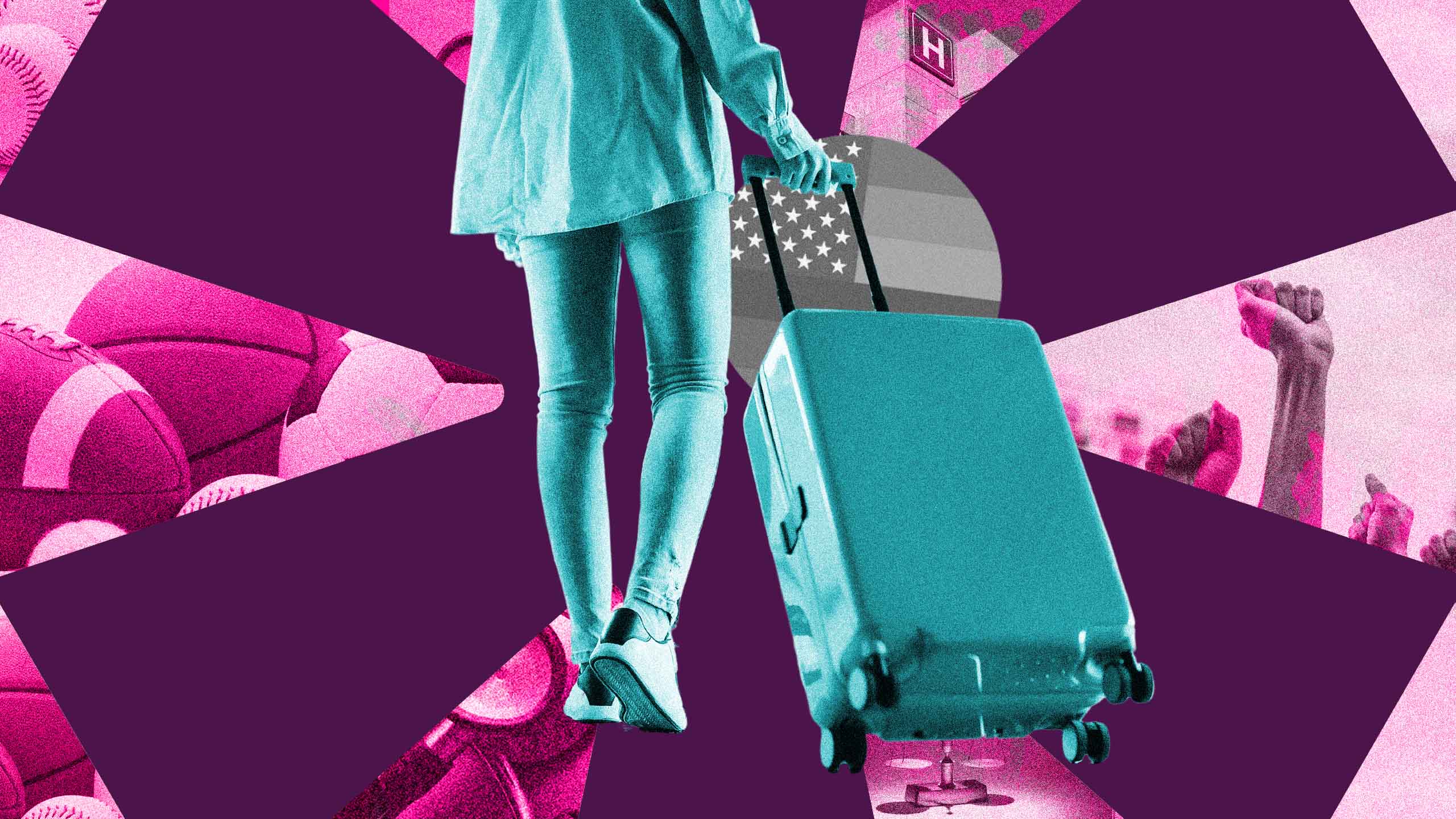The United States has a systemic transphobia problem, and one of the country’s closest allies, Canada, has started to notice. On Tuesday morning, Global Affairs Canada updated its U.S. travel advisory to include a note warning LGBTQ2S+ travellers that “some states have enacted laws and policies” that may discriminate against them.
The advisory change comes after 18 states passed laws banning or limiting the freedom of trans Americans and their families during this year’s state legislative sessions. A report by the Canadian Press about the change noted that the U.S. advisory differs from other queer and trans travel warnings for countries like Tanzania or Egypt, in that the specific states and laws are not specified. Instead, travellers are encouraged to check local laws in the U.S. before their trip.
I’ve written before about how I refuse to travel to Florida since the state passed a bathroom bill. Right now, Florida seems like the most extreme anti-trans state in the U.S. after its legislature passed numerous laws seeking to push trans and queer people further to the margins of society.
U.S.-based LGBTQ2S+ rights organization Human Rights Campaign, along with local queer advocacy group Equality Florida, recently issued their own travel advisories for the state.
Beyond the state’s bathroom bill, Florida’s legislature also passed a law in May authorizing the state to essentially kidnap trans children, or “children at risk of being trans” from loving, supportive parents.
The Sunshine State is, of course, not the only conservative state to pass these laws, but serves as the prime example for why Canada has begun to warn queer and trans travellers who want to visit the U.S. that they may face hostile conditions once they arrive.
It’s also an indication of how far backward many conservative states have moved on queer rights over the last several years. Many states, especially Florida, depend on tourism dollars continually flowing into the state, but the radical conservative attacks on queer and trans people threaten that inflow of visitors.
According to a report released recently by Visit Florida, the state’s tourism marketing agency, the total number of tourists visiting the state between April and June this year declined by 1.2 percent compared to the same time period the year before, a decline of about 400,000 travellers. Domestic tourists, who make up the largest portion of annual visitors to the state, declined by 2.4 percent over that time. This isn’t necessarily due to the state’s anti-LGBTQ2S+ legislation, but it is a sign that Florida isn’t exactly in a position to lose more potential tourists.
While Florida may be seeing a decline in domestic travel, international tourism may also start to see a hit as countries like Canada take notice.
Canada is one of the United State’ closest allies, sharing the longest non-militarized land border in the world. The two countries have long enjoyed peaceful and cooperative relations. It doesn’t appear as if the new travel advisory will affect that relationship.
“We are able to manage that relationship regardless of the choice that the people of the United States make,” said Deputy Prime Minister Chrystia Freeland, according to the previously mentioned Canadian Press report. “Even as we work hard on that government-to-government relationship, every Canadian government, very much including our government, needs to put at the centre of everything we do the interests and the safety of every single Canadian and every single group of Canadians.”
The timing of the advisory, with a federal election looming and the governing Liberals sinking in the polls, has prompted criticism that it was made for political ends, a charge Freeland denies.
The advisory is also somewhat ironic coming from a country that is currently struggling with a wave of transphobic action in school boards in a few of its own provinces. The anti-trans movement has long been international, with roots throughout the English-speaking world, including the U.S., U.K. and yes, even Canada. The U.S. has taken it the furthest thus far, and American extremism on this issue is beginning to bleed into our neighbours to the north.
Freeland declined to say whether they gave the Biden administration a heads-up about the travel warning. U.S. ambassador David L. Cohen didn’t directly respond to the travel warning, but told the press the country “stands for equality and equal treatment for all. The United States is committed to promoting tolerance, inclusion, justice and dignity while helping to advance equality for the LGBTQ2S+ community.”
While this is only a first small step toward the international community recognizing the radical anti-trans actions of American conservatives, it also serves as a warning against the establishment of further conservative power in the U.S.
If elected to total federal power, there will be nothing stopping conservative Republicans from attacking trans people throughout the country, even in blue states. At that point, it would be hard for liberal democracies in other countries to ignore.
We need to act now, starting with next year’s presidential election year, to stop these transphobic politicians from coming to power. If they win, a Canadian travel warning and declining tourism dollars will be the least of our problems.


 Why you can trust Xtra
Why you can trust Xtra


